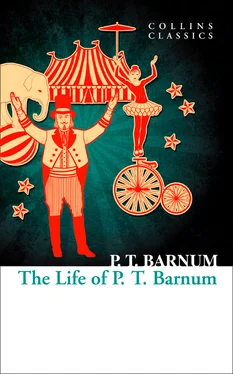1 ...6 7 8 10 11 12 ...29 “Yes,” would be the reply; “but will you remain so?”
Drawing himself up, with a look of pride which always distinguished him before his fall, he would say, “Do you suppose that I would bemean myself and family by becoming a confirmed sot?”
His wife was respected and his children beloved by all the neighbors; they continued to interchange visits with our most worthy families; and, notwithstanding his long career of dissipation, his neighbors did not cease to hope that, by appealing to his pride and self-respect, they could be able, during some of his sober intervals, to induce a promise of total and eternal abstinence from the cup. His sense of honor was so elevated, that they felt sure he would break the fatal spell for ever, if he would but once pledge his word to do so.
“No, surely you would not become a sot; your self-respect and love for your family would not permit it; and therefore I suppose you will never drink liquor again,” remarked an anxious neighbor.
“Not till my ‘keg’ is up, which is three weeks from yesterday,” was the reply.
“Oh, give us your word now,” chimed in several friends, “that you will not drink when your ‘keg,’ is up, but that you will abstain for ever. Only pledge your word, and we know you’ll keep it.”
“To be sure I would, so long as the world should stand. My word is sacred, and therefore I am cautious about pledging it. When once given, all the fiends of Pandemonium could not tempt or force me to break it. But I shall not pledge myself. I only say you are right, gentlemen; drinking liquor is a bad business, and when my ‘keg’ is up – I’ll think about it. I break off once in a few months, merely to prove to myself and to you that I am not a drunkard and never shall be, for you see I can control myself.”
With this delusive sophism the poor fellow would content himself, but he almost unconsciously looked forward with hope and joy for the time to arrive which had been fixed upon, for his pent-up appetite grew the stronger as the day approached, and therefore as soon as the moment arrived he would seize the bottle, and be drunk as speedily as possible. Then would be renewed his career of misery, and then again would his trembling wife and children feel overwhelmed by the dark picture opening before them.
At the termination of one of these “kegs,” he got drunk as usual, and beat his wife as he had often done before. On awaking the next morning, he desired her to send a child to the store for rum. She replied that they had all gone to school. He then requested her to go and replenish the bottle. She made an excuse which put, him off for an hour or two, when he arose from the bed and essayed to eat his breakfast. But his parched tongue and burning throat, the results of last night’s debauch, destroyed all appetite except for rum, and although perfectly sober, this raging fire almost maddened him; and turning to his wife, he said:
“Mrs.—, I am sick; you must go and get me some liquor.”
“I cannot do it,” was the sad but firm reply.
“Cannot! Am I to be disobeyed by my lawful wedded wife? Have I sunk so low that my wishes may be thwarted and my directions disobeyed by the partner of my life?” replied he with all his native pride and dignity.
“I never refused to do any thing which would promote your happiness, but I cannot help you procure that which will make you unhappy and your family wretched,” replied the desponding wife.
“We will soon see who is master here,” replied the husband, “and you will find that I shall show my power in a manner that you will feel, for I will stop your credit at the store.”
With this threat he buttoned up his coat, ran his fingers through his hair, and placing his bottle in his pocket, strode off to the village, with the dignity of a Brutus.
Arriving at our store, he marched up to the proprietor with the air of a wealthy patron, and exclaimed:
“Mr. Weed, my wife has disobeyed me this morning, and I forbid you to trust her on my account.”
Mr. Weed, seeing by the rolling eye and pallid face of his customer, that the “keg” was broken, replied with considerable sharpness:
“Oh, Mr.—, you need not have taken the trouble to forbid me trusting your wife, for I would not trust you! ”
This repulse, so sudden and unexpected, at once overwhelmed and saved him. He was astonished to find himself brought so low, and indignantly drawing the empty bottle from his pocket and dashing it into a thousand pieces upon the floor, he exclaimed:
“There! thou cursed leveller of humanity, and destroyer of man’s respect! I pledge myself before God, I will never again taste a drop of any thing that can intoxicate;” and he kept his word. He is now a wealthy man, has frequently represented his town in the State Legislature, and his family, including several grand-children, is one of the first in the country in point of respectability and moral worth.
There is something to be learned even in a country store. We are apt to believe that sharp trades, especially dishonest tricks and unprincipled deceptions, are confined entirely to the city, and that the unsophisticated men and women of the country do every thing “on the square.” I believe this to be measurably true, but know that there are many exceptions to this rule. Many is the time I cut open bundles of rags, brought to the store by country women in exchange for goods, and declared to be all linen and cotton, that contained quantities of worthless woollen trash in the interior, and sometimes stones, gravel, ashes, etc. And sometimes, too, have I (contrary to our usual practice) measured the load of oats, corn or rye which our farmer-customer assured us contained a specified number of bushels, perhaps sixty, and found it four or five bushels short. Of course the astonished woman would impute the rag-swindle to a servant or neighbor who had made it up without her knowledge, and the man would charge carelessness upon his “help” who measured the grain, and by mistake “made a wrong count.” These were exceptions to the general rule of honesty, but they occurred with sufficient frequency to make us watchful of our customers, and to teach me the truth of the adage, “There’s cheating in all trades but ours.”
While I was clerk in the store in Bethel, my father kept the village tavern. I usually slept with my younger brother Eder, but when our house was filled with travellers we were obliged to sleep “three in a bed,” by taking in our honest Irish farmer, Edmund, as sleeping partner. After the store was closed at night, I would frequently join some of our village boys in a party at the house of their parents, and what with story-telling and various kinds of “child’s play,” a couple of hours would glide away, and at eleven o’clock at night (which was later than my parents permitted) I would slyly creep up stairs, and crawl into bed with the greatest caution lest I should awake my brother, who would be sure to report my late hours to my parents.
My brother contrived all sorts of plans to catch me on my return home, but sleep would overtake him, and thus I eluded his vigilance. Sometimes he would pile trunks and chairs against the door, so that I could hardly open it without upsetting the barricade, and awakening him by the noise. I generally managed, however, to open the door by degrees, and get to bed without disturbing his slumbers.
One night I found the door fastened on the inside by a nail firmly driven over the latch. Determined not to let him outwit me, I descended the stairs, found a short ladder which I ascended, and entered our bedroom window without being discovered. These continual contrivances of my brother made me always suspicious of some trap on my return home, and I generally approached my dormitory with the greatest caution. One night I returned as usual about eleven o’clock, and opening the door a few inches with great care, I run in my arm in order to discover any obstructions which might lie in wait for me. My hand soon touched a small cord, which I found was attached to the door-latch by one end; where the other end was fastened I could not imagine, and the darkness would not enable me to discover. I drew a knife from my pocket, and cutting the cord very cautiously, opened the door and got into bed without discovery. On awaking the next morning, I found the other end of the cord attached to my brother’s big toe! This ingenious contrivance he thought would wake him up, and it undoubtedly would have done so but for my timely discovery.
Читать дальше












